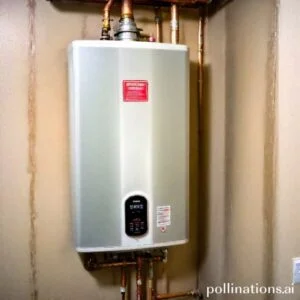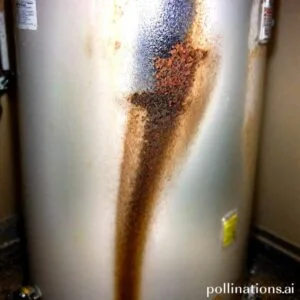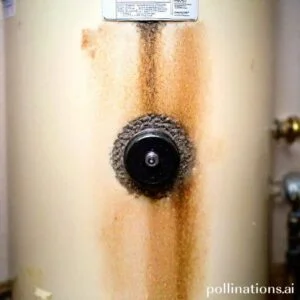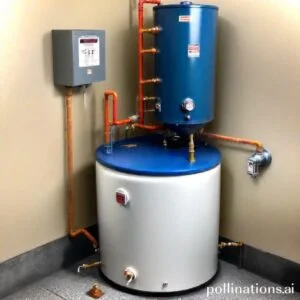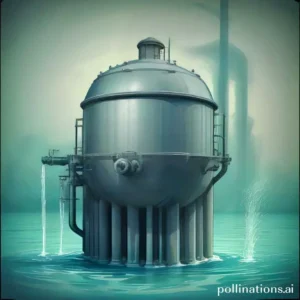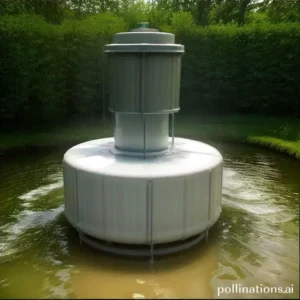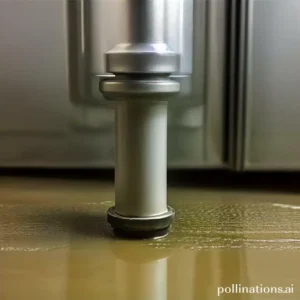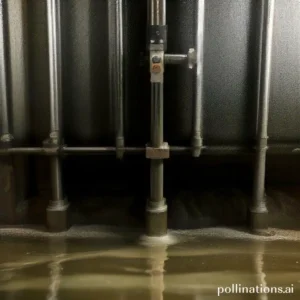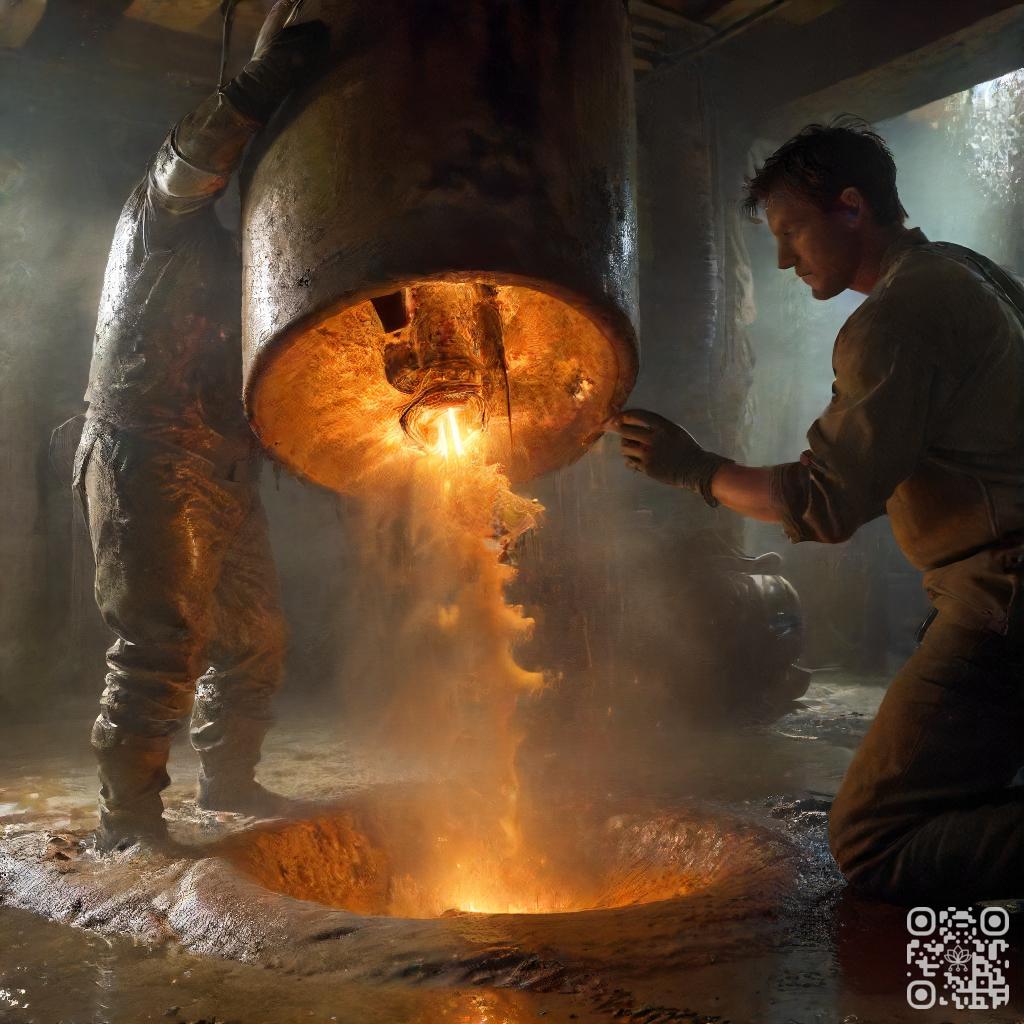
Maintaining the efficiency and longevity of commercial water heaters is crucial for businesses. One key aspect of this is sediment removal.
Over time, sediment can build up in water heaters, causing decreased performance and potential damage. Our sediment removal services offer a solution to this problem.
By efficiently and effectively removing sediment from commercial water heaters, we help businesses optimize their operations and save on energy costs. Trust us to keep your water heaters running smoothly and efficiently, ensuring a reliable supply of hot water for all your business needs.
Mastering Sediment Buildup in Commercial Water Heaters
In this section, we will probe into the causes and effects of sediment buildup in commercial water heaters, as well as the signs to look out for.
1. What Causes Sediment Buildup in Commercial Water Heaters?
Sediment buildup in commercial water heaters is primarily caused by minerals and impurities present in the water supply. When water is heated, these minerals and impurities settle at the bottom of the tank, leading to sediment buildup over time. Additionally, high water pressure or temperature fluctuations can contribute to the accumulation of sediment.
For instance, the presence of calcium and magnesium in hard water can result in the formation of limescale, which can accumulate in the tank. This can reduce the efficiency of the water heater and lead to potential damage if not addressed.
2. How Does Sediment Buildup Affect Commercial Water Heaters?
Sediment buildup can have several negative effects on commercial water heaters. First and foremost, it can reduce the heating efficiency of the system. As sediment accumulates at the bottom of the tank, it acts as an insulating layer, preventing effective heat transfer. This can result in longer heating times and increased energy consumption.
Moreover, sediment buildup can lead to the corrosion of the tank and other components. The sediment traps moisture against the metal surfaces, promoting rust and deterioration. This can weaken the tank structure and eventually lead to leaks or malfunctions.
3. Signs of Sediment Buildup in Commercial Water Heaters
Recognizing the signs of sediment buildup is crucial in maintaining the performance and longevity of commercial water heaters. Some common indicators include:
- Reduced Hot Water Output: If you notice a decrease in the amount of hot water your system produces, sediment buildup could be the culprit. The sediment takes up space in the tank, leaving less room for water to be heated.
- Noises or Rumbling: Sediment can cause noises or rumbling sounds during the heating process. This occurs when the water is forced through the layer of sediment, creating turbulence and vibrations.
- Inconsistent Water Temperature: Sediment buildup can disrupt the flow of hot water, leading to fluctuations in temperature. You may experience sudden bursts of scalding or cold water.
If you observe any of these signs, it is essential to address the sediment buildup promptly to avoid further damage and ensure the optimal performance of your commercial water heater.
| Sediment Buildup Effects | Causes |
|---|---|
| Reduced heating efficiency | Minerals and impurities in water supply |
| Tank corrosion | High water pressure or temperature fluctuations |
| Decreased hot water output | Calcium and magnesium in hard water |
Importance of Sediment Removal in Commercial Water Heaters
Sediment removal in commercial water heaters is a crucial maintenance task that should not be overlooked. By regularly removing sediment from these units, you can enjoy several benefits and ensure their optimal performance and longevity.
1. Benefits of Sediment Removal in Commercial Water Heaters
Removing sediment from commercial water heaters offers various advantages:
- Enhanced Efficiency: Sediment buildup can decrease the efficiency of water heaters by insulating the heating elements and reducing their ability to transfer heat. Regular removal ensures optimal heat transfer and improves overall energy efficiency.
- Extended Lifespan: Sediment accumulation can lead to corrosion and damage to the tank, which can significantly shorten the lifespan of commercial water heaters. By removing sediment, you prevent such issues and prolong the lifespan of the unit.
- Improved Performance: Sediment can cause blockages in pipes and valves, leading to reduced water flow and inadequate hot water supply. Regular removal helps maintain proper water flow, ensuring consistent and reliable performance.
2. Frequency of Sediment Removal in Commercial Water Heaters
The frequency of sediment removal in commercial water heaters depends on various factors, such as water quality and usage. In general, it is recommended to schedule sediment removal at least once a year. Nonetheless, in areas with hard water or high sediment content, more frequent removal may be necessary. Regular inspections and monitoring can help determine the optimal frequency for sediment removal.
3. Tools Required for Sediment Removal in Commercial Water Heaters
To effectively remove sediment from commercial water heaters, you will need the following tools:
- Drain Valve Key: This tool is used to open and close the drain valve, allowing the sediment to be flushed out.
- Hose: A hose is connected to the drain valve to direct the sediment-laden water away from the unit.
- Bucket or Drain Pan: A bucket or drain pan is used to collect the sediment-laden water during the flushing process.
- Gloves and Safety Gear: Indispensable to protect yourself during the sediment removal process by wearing gloves and any necessary safety gear.
How to Remove Sediment from Commercial Water Heaters
In order to maintain the optimal performance and efficiency of commercial water heaters, it is crucial to regularly remove sediment buildup. Sediment, such as minerals and debris, can accumulate over time and negatively impact the heating system. Follow these steps to effectively remove sediment from your commercial water heaters:
1. Steps for Sediment Removal in Commercial Water Heaters
Removing sediment from commercial water heaters requires a systematic approach. Here are the steps to follow:
- Step 1: Turn off the power supply to the water heater to ensure safety during the sediment removal process.
- Step 2: Attach a hose to the drain valve located at the bottom of the water heater.
- Step 3: Place the other end of the hose in a suitable drainage area or a floor drain.
- Step 4: Open the drain valve and allow the water to flow out, along with the sediment. Be cautious as the water may be hot.
- Step 5: Let the water flow until it runs clear, indicating that the sediment has been flushed out.
- Step 6: Close the drain valve and detach the hose.
- Step 7: Turn on the power supply to the water heater once the sediment removal process is complete.
2. Safety Precautions for Sediment Removal in Commercial Water Heaters
In the course of removing sediment from commercial water heaters, it is essential to prioritize safety. Take the following precautions:
- Safety Precaution 1: Always turn off the power supply to the water heater before starting the sediment removal process.
- Safety Precaution 2: Use protective gloves and eyewear to prevent any injuries during the process.
- Safety Precaution 3: Be cautious of hot water meanwhile draining, as it can cause burns.
- Safety Precaution 4: Ensure the drainage area is suitable and can handle the water flow during the sediment removal process.
3. Tips for Effective Sediment Removal in Commercial Water Heaters
To optimize the effectiveness of sediment removal in commercial water heaters, consider the following tips:
- Tip 1: Schedule regular maintenance and sediment removal to prevent excessive buildup.
- Tip 2: If the sediment is stubborn and does not flush out easily, consider using a descaling solution specifically designed for water heaters.
- Tip 3: Consult a professional if you are unsure about the sediment removal process or encounter any difficulties.
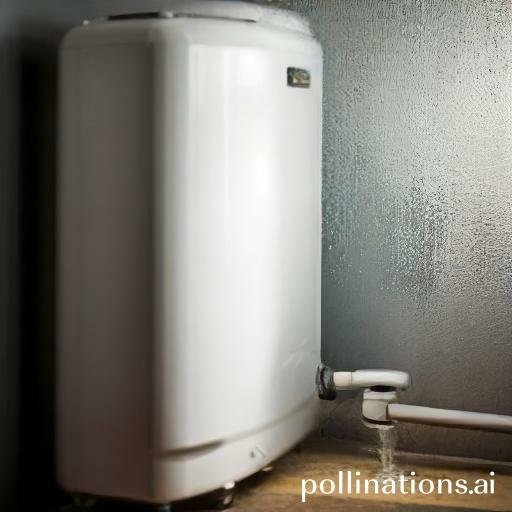
Preventing Sediment Buildup in Commercial Water Heaters
Sediment buildup in commercial water heaters is a common issue that can lead to reduced efficiency and costly repairs. To prevent sediment buildup and ensure optimal performance, it is essential to implement preventative measures, manage water quality effectively, and perform regular maintenance.
1. Preventative Measures for Sediment Buildup
Preventing sediment buildup starts with the installation of a high-quality water filtration system. This system will remove impurities and sediment from the incoming water supply, reducing the amount of debris that can accumulate in the water heater. Additionally, installing a sediment trap or a water softener can further minimize sediment buildup.
Regularly flushing the water heater is another effective preventative measure. This process involves draining the tank to remove any sediment that has settled at the bottom. Flushing should be performed at least once a year, but more frequently in areas with hard water.
2. Water Quality Management
Maintaining good water quality is crucial in preventing sediment buildup. Hard water, which contains high levels of minerals like calcium and magnesium, is particularly prone to causing sediment buildup. Consider using a water softener to reduce the mineral content in the water, thereby minimizing the formation of sediment.
Regular water testing should also be conducted to monitor the water quality. If any issues are detected, appropriate treatment measures can be implemented to prevent sediment buildup and ensure the longevity of the water heater.
3. Regular Maintenance
Regular maintenance is essential for preventing sediment buildup and extending the lifespan of commercial water heaters. This includes inspecting the tank and components for any signs of sediment accumulation or corrosion. If sediment is detected, it should be promptly removed to prevent further buildup.
In addition, checking and adjusting the temperature and pressure relief valve is vital for optimal operation and safety. It is also recommended to schedule professional maintenance services periodically to thoroughly clean and inspect the water heater.
| Preventative Measures | Water Quality Management | Regular Maintenance |
|---|---|---|
| Install water filtration system | Use water softener | Inspect for sediment accumulation |
| Install sediment trap | Regular water testing | Remove sediment promptly |
| Regularly flush the water heater | Treat water quality issues | Check and adjust relief valve |

Hiring a Professional for Sediment Removal in Commercial Water Heaters
Touching on maintaining commercial water heaters, one important task that cannot be overlooked is sediment removal. Sediment buildup in water heaters can lead to a range of issues, including reduced efficiency, increased energy consumption, and even potential damage to the heating system. Whilst some business owners may attempt to tackle sediment removal themselves, hiring a professional for this task offers numerous benefits and ensures a thorough and effective cleaning process.
Benefits of Hiring a Professional for Sediment Removal in Commercial Water Heaters
- Expertise: Professionals who specialize in sediment removal have the knowledge and experience to identify the specific needs of commercial water heaters. They understand the intricacies of different systems and can tailor their approach accordingly.
- Efficiency: Professionals have the necessary tools and equipment to efficiently remove sediment from commercial water heaters. They can complete the task in a timely manner, minimizing downtime and disruptions to your business operations.
- Thorough Cleaning: Sediment removal requires more than simply draining the tank. Professionals use specialized techniques to thoroughly clean the tank, eliminating all traces of sediment and ensuring optimal performance.
- Preventive Maintenance: Hiring a professional for sediment removal is not only about addressing current sediment buildup but also about preventing future issues. Regular maintenance by professionals can help extend the lifespan of your commercial water heater and prevent costly repairs.
Factors to Consider When Choosing a Professional for Sediment Removal in Commercial Water Heaters
When selecting a professional for sediment removal in commercial water heaters, fundamental to consider the following factors:
- Experience: Look for professionals with extensive experience in sediment removal for commercial water heaters. They should have a proven track record of delivering high-quality services.
- Certifications and Licenses: Ensure that the professional holds the necessary certifications and licenses required for performing sediment removal in commercial settings. This ensures compliance with safety and industry standards.
- Reputation: Read reviews and testimonials from past clients to gauge the reputation of the professional. A reliable and reputable service provider will have positive feedback and satisfied customers.
- Pricing: Compare pricing from different professionals and consider the value they offer. Remember that the cheapest option may not always be the best choice. Look for a balance between quality and affordability.
Cost of Hiring a Professional for Sediment Removal in Commercial Water Heaters
The cost of hiring a professional for sediment removal in commercial water heaters can vary depending on factors such as the size of the water heater, the extent of sediment buildup, and the specific requirements of your system. It is recommended to obtain quotes from multiple professionals and compare their offerings before making a decision. Remember that investing in professional sediment removal is a cost-effective solution in the long run, as it helps maintain the efficiency and longevity of your commercial water heater.
| Size of Water Heater | Cost Range |
|---|---|
| Small (up to 50 gallons) | $100 – $200 |
| Medium (50-100 gallons) | $200 – $400 |
| Large (over 100 gallons) | $400 – $800 |
Bottom Line
Commercial water heaters are essential for many businesses, but sediment buildup can cause serious problems. Regular sediment removal is necessary to maintain the efficiency and longevity of these systems. There are several methods available for sediment removal, including flushing, draining, and vacuuming. Vital to follow manufacturer guidelines and safety precautions when performing sediment removal. Neglecting sediment buildup can lead to decreased efficiency, increased energy costs, and even system failure. By prioritizing sediment removal, businesses can ensure their water heaters operate effectively and efficiently, saving money and avoiding potential downtime.
Overall, sediment removal is a crucial aspect of commercial water heater maintenance. By staying on top of sediment buildup, businesses can avoid costly repairs and replacements, and keep their operations running smoothly. Don’t neglect sediment removal – make it a priority for your business today.
Read More:
1. Diy Sediment Removal For Electric Water Heaters
2. Sediment Removal Frequency For High-Use Households

